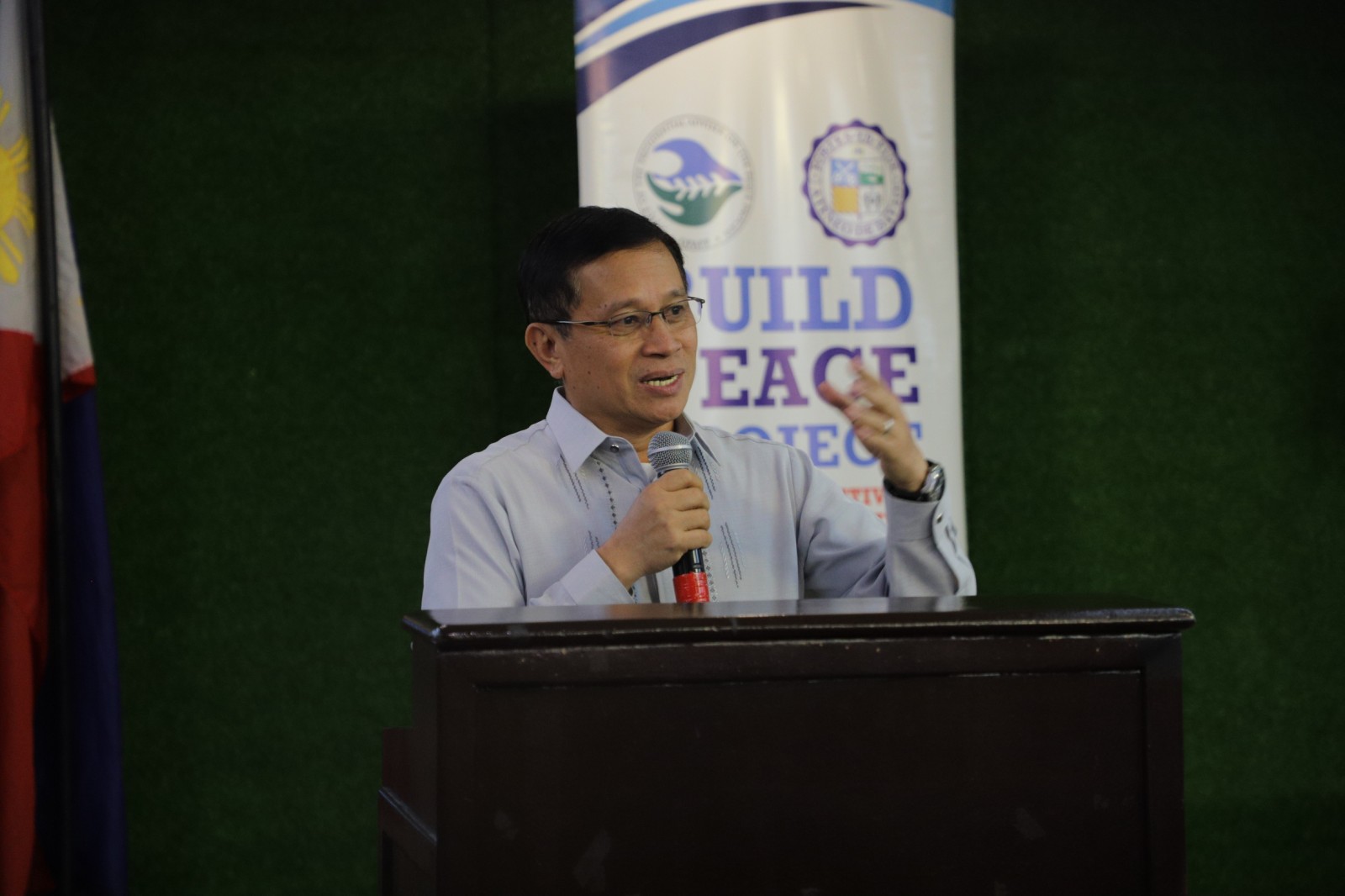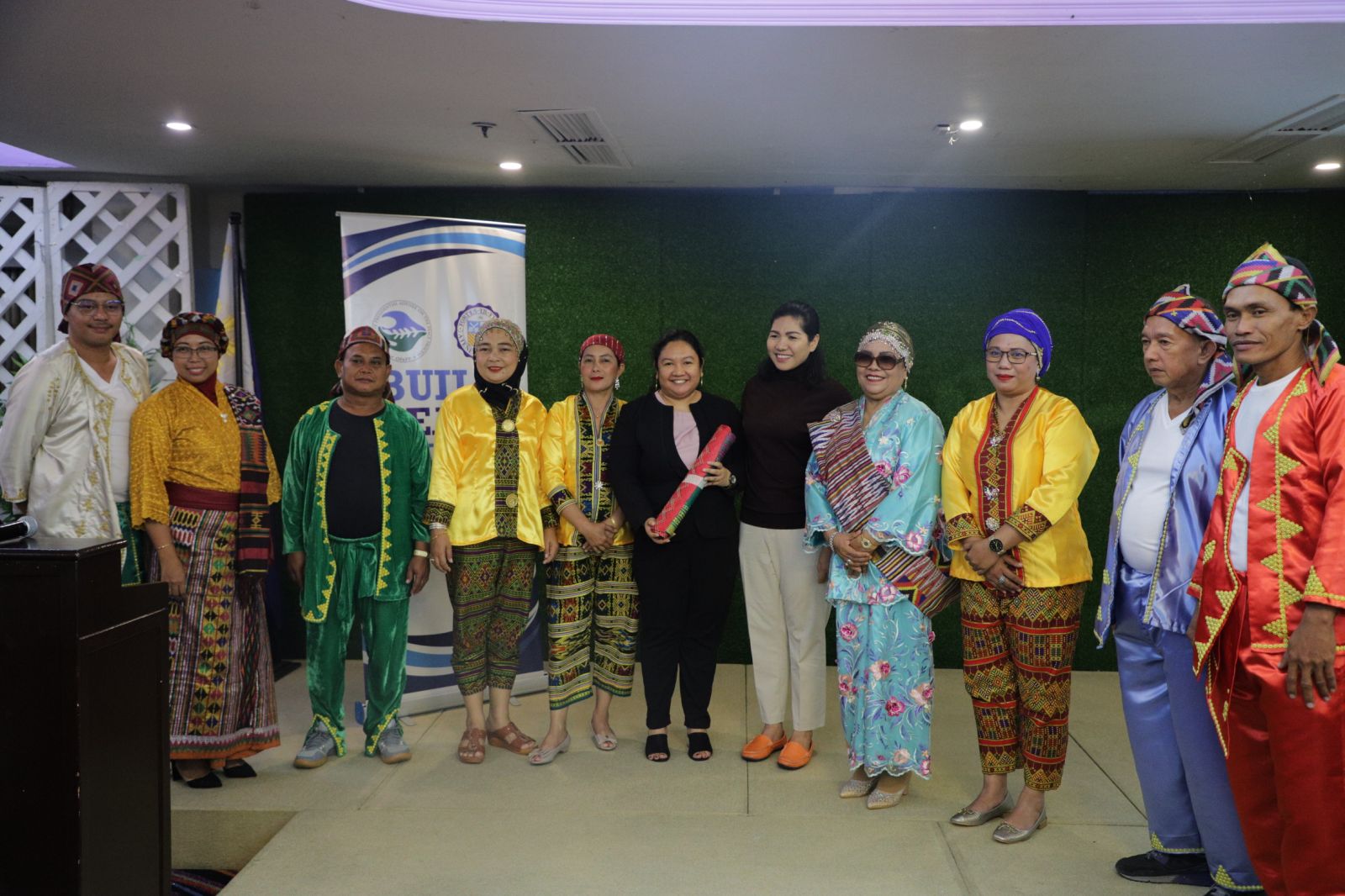MANILA (March 5, 2020) – Around 180 barangay officials from the Bangsamoro region gathered here on Wednesday to formally present their newly-completed barangay development plans (BDP) to their respective local government units.
The formulation of these Conflict-Sensitive and Peace-Promoting (CSPP)-compliant BDPs was spearheaded by the Office of the Presidential Adviser on the Peace Process’ (OPAPP) under its Social Healing and Peacebuilding (SHAPE) Program and funded under the PAyapa at MAsaganang PamayaNAn (PAMANA).
The project – covering 98 barangays, 72 of which are in Marawi – was in response to the 2017 siege which displaced 375,000 residents and destroyed billions worth of property. Other partner barangays are from Maguindanao, Basilan, Sulu and Tawi-Tawi.
The SHAPE Program aims to carry out social healing and reconciliation interventions in Marawi in support of the national government’s multi-agency reconstruction and rehabilitation efforts in the city.
Deputy Presidential Peace Adviser Isidro L. Purisima commended the barangay officials for developing their BDPs. These plans identify and prioritize programs, projects and services to be implemented by barangay local government units.
“This is a victory for all of us because you were able to overcome challenges in completing this journey of crafting your Barangay Development Plans. Congratulations to all!” Purisima said.
He also underscored the importance of carrying out these kinds of capacity-building programs for LGUs, particularly those situated in underdeveloped, conflict-affected areas in Mindanao.
“[This] project aims to strengthen the capacities of local governments and institutions, as well as enhance the capacities for promoting peace in their communities, with the goal of mitigating or removing the causes of unpeace [and] paving the way for peace and development,” Purisima said.

He also called on the barangay officials, local chief executives and CSOs present “to continue to engage the national government in the pursuit of just and lasting peace for all Filipino people.”
Ateneo de Davao University (AdDU) Community Engagement and Advocacy Council (UCEAC) chairperson Mark Samonte lauded the barangay officials for the effort they had put in to craft their BDPs.
“Today, we turn over the fruits of your dedication and hardwork. After the training and capacity-building, we accepted the challenge and worked together with pride and joy,” Samonte said.
“This exercise was our way of ensuring the future of our children. We bear the responsibility of providing the foundations for them on making standards that will become their guides,” he added.
The ceremonial turnover of the BDPs was held after more than a year of careful planning and preparation by the barangay officials to ensure their plans will promote social cohesion, genuine peace and sustainable development in their communities.
For her part, Project Manager Engr. Ma. Clarissa Tuazon said: “The UNDP recognizes and understands the [importance of] increasing capacities of local government units on peace and conflict sensitivity.”
“These barangay development plans are products of painstaking relationship building, partnerships and collaboration between all organizations involved,” Tuazon added.
To ensure the project’s successful implementation, OPAPP partnered with the Ateneo de Davao University’s (AdDU)’ Resource Center for Local Governance (ARCLG) and the Maguindanaon Development Foundation, Inc. (MDFI).
OPAPP also sought the assistance of civil society organizations (CSOs) which were tasked by the agency to provide technical support to the barangays in the preparation of their BDPs.
These CSOs included Ecosystems Work For Essential Benefits (ECOWEB), Muslim-Christian Agency Advocacy, Relief and Development (MuCCARD), Duyog Marawi, Kalimudan sa Ranao, Balay Mindanao, Kapamagogopa Inc., United Youth for Peace and Development, Inc. (UNYPAD) Ranao Inc, Mindanaw Tripartite Youth Core-Mindanaw Tripartite Youth Core (BUC-MTYC), Balay Integrated Rehabilitation Center for Total Human Development (BIRTH-DEV), Maranao People Development Center Inc. (MARADECA), Maguindanaon Development Foundation, Inc. (MDFI), Basilan Peace, Environmental, Sustainable and Development Association (BAPESDA), Tawi-Tawi Alliance of Civil Society Organizations (TACOS), and Integrated Rural Development for Tri-People (IRDT).
The United Nations Development Program (UNDP) likewise provided support to the implementation of the project by acting as the fund manager through its Support to Peacebuilding and Normalization (SPAN) Programme. ###












